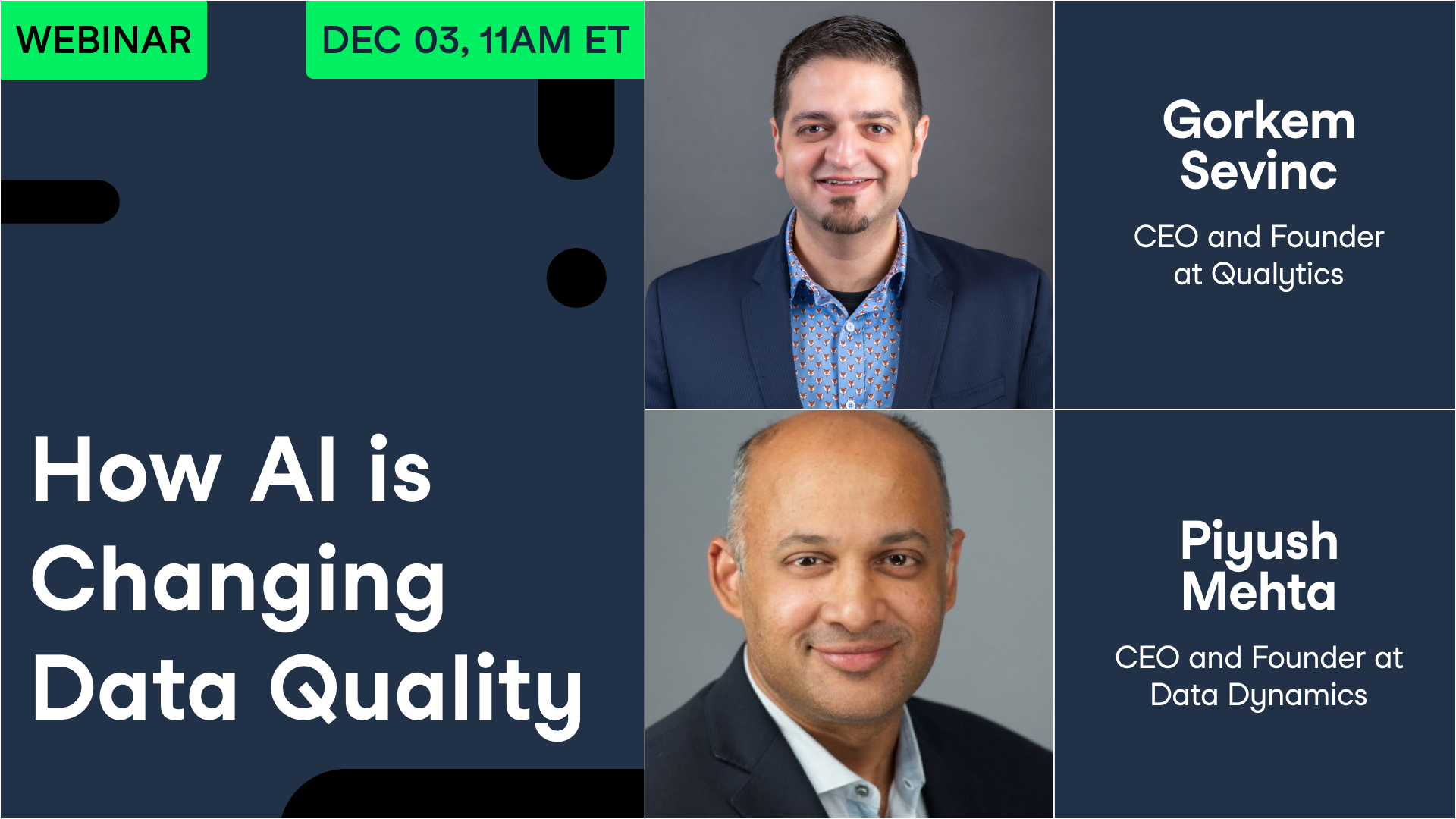Skip to main content





Related
webinar
Laying the Foundations: Data Quality in the Age of AI
Join Susan Walsh and Scott Taylor as they walk us through how data leaders can make meaningful gains on their data quality initiatives, and the nuances of scaling a data quality initiative with AI in mind.webinar
Scaling Data Quality in the Age of Generative AI
Explore the nuances of scaling data quality for generative AI applications, including the unique challenges and considerations that come into play.webinar
Radar Data & AI Literacy Edition: Laying the Foundations: Data Quality in the Age of AI
Join Susan Walsh and Scott Taylor as they walk us through how data leaders can make meaningful gains on their data quality initiatives, and the nuances of scaling a data quality initiative with AI in mind.webinar
Adding Value in Pharma Through Data & AI Transformation
In this session three pharmaceutical executives, with experience as Chief Data Officers and strategic consultants, discuss techniques to improve your digital capabilities.webinar
Increasing Your Organization's Data & AI Maturity
John Thompson, the Head of AI at EY, and Robin Sutara, a Field Chief Data Strategy Officer at Databricks, teach you how to assess your data and AI maturity, and how to improve it.webinar
Leading with AI: Leadership Insights on Driving Successful AI Transformation
C-level leaders from industry and government will explore how they're harnessing AI to propel their organizations forward.Join 5000+ companies and 80% of the Fortune 1000 who use DataCamp to upskill their teams.
Loved by thousands of companies


